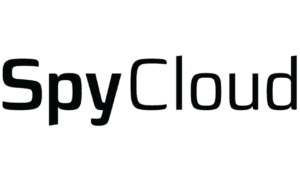Although ransomware attackers and small business owners differ in ethics and legality, they share similar operational strategies. Understanding these similarities can provide valuable insights for small businesses.
Why You Know More about Ransomware Than You Realize
Ransomware criminals and small business owners might seem worlds apart, but they actually run their operations in similar ways. Granted, the ethical and legal contexts are entirely different, but the structured and business-like approach that cybercriminals use might strike you as familiar.
Small businesses can learn a lot by understanding these parallels. Let’s explore what they have in common.
1. Strategic Planning for Success
Both ransomware operators and small business owners plan their moves carefully. Attackers choose their targets based on which ones are most likely to pay a ransom. For example, they might focus on healthcare providers, knowing that these organizations cannot afford downtime.
The short-term impact they have in mind focuses most on data availability and system functionality. Long-term, ransomware operators seek to provoke societal harms, reducing the overall confidence in the integrity, reliability and safety of the systems everyone relies on.
Similarly, small business owners plan their market approach, targeting specific customer segments to achieve their business goals: building brand awareness, creating consumer trust and generating sales.
2. Clear Business Models
Both groups follow a clear business model. Ransomware operators can choose to buy, build or even rent their tools. They might purchase existing ransomware code, develop their own or use Ransomware-as-a-Service (RaaS), where they pay to use a customizable ransomware platform. SMBs often face similar decisions, such as whether to develop a product in-house, buy it from a supplier or use a service that provides the product on demand.
Cybercriminals also use affiliates who handle different stages of the attack, like ‘hand-on-keyboard’ attacks that take place after the initial access, up to the point of deploying the actual ransomware. This is akin to small businesses outsourcing tasks to specialists, like hiring a marketing firm to handle advertising while they focus on product development.
Like all affiliates, these attackers sometimes use commercial tools that are often built for system administrators or legitimate adversary simulation teams. Since they’re legitimate and widely available, these tools can’t simply be banned in the same way that malware can, making them a challenge for security professionals.
3. Managing Resources Efficiently
Managing resources is important for both cybercriminals and SMBs. Ransomware operators leverage their tools, servers and networks to optimize their operations, just as small business owners manage finances, inventory and staff to maximize productivity and profitability.
For example, a ransomware group might use cloud services to manage their operations efficiently, while an SMB might use inventory management software to keep track of stock and sales.
4. Specialization Is Key
Specialization plays a big role for ransomware operations. They often involve different actors for different functions, such as developers, affiliates and negotiators.
Similarly, businesses delegate tasks to roles like a financial officer, a marketing manager and a customer service representative. Each function can be handled by different experts or, in smaller setups, by the same person wearing multiple hats.
5. Marketing and Outreach Strategies
Ransomware operators use phishing campaigns and social engineering to reach potential victims. They craft convincing emails or messages that trick individuals into clicking on malicious links.
On the flip side, business owners use marketing campaigns and outreach strategies to attract customers. They might run social media ads, send newsletters or offer promotions to draw in clients.
6. Adapting to Change
Both need to adapt to changing environments. Ransomware operators continually update their techniques to bypass new security measures. For instance, if a new antimalware software becomes popular, they strive to quickly find ways to evade detection.
Small businesses also adapt to market trends, customer needs and economic conditions. If a new and similar business enters the market, they might change their pricing strategy or introduce new products to stay competitive.
7. Generating Revenue
Both ransomware operators and SMBs have one central goal: to make money. Ransomware operators generate revenue through ransom payments, often demanding cryptocurrency to maintain anonymity.
Small business owners generate revenue through sales of products or services. Both need a steady stream of income to sustain their operations.
8. Managing Risk
Risk management is another commonality. Ransomware operators evaluate the risk of detection and capture, constantly weighing the potential rewards against the dangers.
Small business owners assess financial risks, market competition and operational risks, such as supply chain disruptions. They both develop strategies to mitigate these risks, ensuring their survival and success.
9. Interacting with Customers
Another thing both groups have in common is interacting with customers. In the case of ransomware operators, their customers are two-fold: the victims they interact with to negotiate ransom payments and the affiliates they use to expand their reach.
Small business owners interact with customers to provide support and build relationships, ensuring repeat business and customer loyalty.
10. Leveraging Technology
Technology is a big part of both operations. Ransomware operators use hacking tools, sophisticated malware, encryption techniques and communication platforms.
Similarly, small business owners rely on 3rd party business management software, ecommerce platforms and digital marketing tools to run their operations efficiently.
11. Scaling Operations
Scalability is important for growth. Ransomware operators scale by automating attacks, expanding their network of compromised systems and developing new types of ransomware. Small businesses scale by expanding their market reach, increasing production and enhancing their service offerings.
For example, a ransomware group might develop a new variant of their malware to bypass updated security measures, while a small business might introduce a new product line to attract more customers.
12. Continuous Improvement
Both cybercriminals and business owners look to continuously improve their operations. Ransomware operators refine their malware and attack vectors to stay ahead of security measures. Small business owners improve their products, services and business processes to stay competitive and meet customer needs. Continuous learning and adaptation are key to their success.
The main thing you should take from these similarities is that you’re better prepared than you think.
Many small businesses may not realize how much they already know about ransomware. From recognizing phishing emails and suspicious links to understanding the risks of weak passwords, these everyday practices are foundational in protecting against ransomware threats. Small business owners and their teams encounter many warning signs regularly, often without realizing their significance. By building on this existing knowledge and implementing targeted security measures, small businesses can turn this awareness into a powerful defense. With the right tools and insights, they’re more prepared than they think to spot and stop ransomware before it impacts their operations.
Bitdefender’s Security Solutions for SMBs
Small and medium-sized businesses need strong, easy-to-use cybersecurity to protect themselves from the rising tide of threats. They need features such as vulnerability management, automated threat blocking and detailed attack analysis to keep their business – and their livelihoods – running smoothly.
Bitdefender provides security solutions specifically designed to provide small businesses with complete protection against all types of malware – including ransomware, phishing, zero-day attack, viruses, spyware and more – in a single, user-friendly platform.
Reduce the risk of threats that can derail your day-to-day with our cybersecurity solutions for SMBs:
- GravityZone Small Business Security: fend off cyberthreats like phishing and ransomware without breaking the bank. This solution gives you a clear view of your security status across devices and alerts for any threats, while keeping things simple. It is perfect for small businesses wanting enterprise-level security at a smaller cost.
- GravityZone Business Security: get all-around protection that stops threats and lowers your risk. With features that control network and web access, manage devices and analyze risks, this solution is great for small to medium-sized businesses looking for something easy to use, constantly effective and budget-friendly.
- GravityZone Business Security Premium: step up your defense with automated threat blocking and detailed attack analysis. This premium package includes everything you need to prevent serious cyberthreats early on, with no extra fuss. It is ideal for businesses ready to upgrade their security without getting caught up in complexity.
With the right tools and planning, you can rest assured ransomware won’t be able to blackmail you into a crisis; and it will also give you the confidence to keep doing what you do best – growing your business.



































